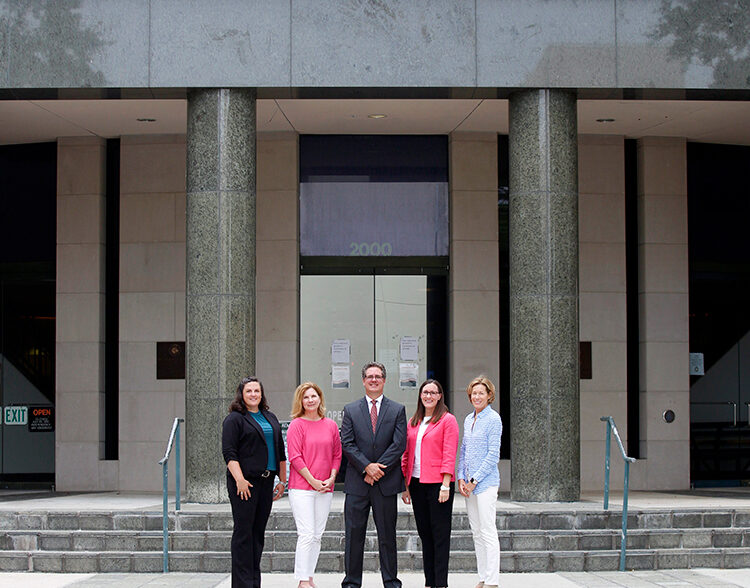
John’s Island Community Service League members recently triggered a collaborative effort to establish an Eviction Prevention and Diversion Mediation Program, which has a goal of keeping tenants in their homes and preventing COVID-19-related evictions by adequately compensating landlords for unpaid rent.
“The program was initiated in an effort to avoid the flood of evictions that we are expecting once the federal government lifts the moratorium prohibiting evictions for the non-payment of rent (currently set to expire June 30). Through the program we anticipate that we will be able to provide financial relief to landlords, while at the same time keeping tenants in their current homes,” said County Court Judge Nicole Menz, who already has some 150 eviction cases waiting to be prosecuted.
“The program would not have been possible without the support and collaboration of the Clerk of Court, Board of County Commissioners, John’s Island Community Service League, Florida Rural Legal Services and the Indian River County Bar Association. This is a great example of what can be accomplished for the citizens of Indian River County when we all work toward a common goal,” added Menz.
This latest program is one of several initiatives prompted by the John’s Island Community Service League. When residents began losing their jobs due to the shutdown last March, JICSL shifted the focus of its Affordable Housing Task Force committee, which was looking for ways to address the lack of affordable housing for lower-income workers.
Recognizing that many of those same workers would be among the first to lose their jobs, and likely their residences, they donated $250,000 to the United Way COVID-19 Fund to help people meet basic needs, including rent.
The JICSL next provided $150,000 to fund a first-ever, dedicated legal aid attorney, Iola Mosley, at the Florida Rural Legal Services to assist residents faced with evictions and mortgage foreclosures through another collaborative effort, the Housing Emergency Advocacy Response Team (HEART) Program. Attorney Erin Harrigan has recently replaced Mosley, who is moving to Palm Beach County to head the FRLS office there.
Ellen Kendall, a JICSL board member, said that they learned about the growing number of eviction cases through their relationship with Mosley. Kendall had read about similar mediation programs in other parts of the country and shared the concept with her JICSL “brain trust.”
“I mean, I just don’t think it was on anybody’s mind. It was an idea that we hatched; nobody really had the time to deal with it,” said Kendall. In February, they hired local attorney Lisa Kahle through FRLS to develop the mediation program.
“Lisa reached out to Judge Menz, who she knew as the lead housing judge in the county, and had a series of conversations with her. Menz thought it was a terrific idea,” Kendall explained.
“Lisa also reached out to Paul Amos, immediate past president of the Bar Association in Indian River County. His role is to get pro bono attorney volunteers to sign up for this program and to train them to work as mediators, representing both the landlord and a tenant in a mediation.”
Kendall said that Jason Brown, county administrator, initially gave approval for up to $7,500 per landlord/tenant case, allocating $2 million from the CARES Act funding the county received last year.
When Judge Menz and Amos spoke at the June 8 County Commission meeting, they requested a higher case cap.
“Because if you think about the fact that, as Judge Menz said in her presentation, the average rent is about $1,200 a month, and if your rent is backed up by 12 months, it’s $14,400,” said Kendall, adding that the program was very well received by the commissioners.
“So, ultimately, at the county commissioners meeting they agreed to raise the cap to $10,500 per case, and that’s on top of the $4,500 that was already available for tenants who needed it for rent support last year,” said Kendall. “They kept it a $2 million cap, but the commissioners said to Judge Menz, ‘If you find that you need more or you need us to raise the cap, come back and talk to us about it.’”
Additionally, the United Way of Indian River County has agreed to pay the filing/court fees through Sept. 30, said Kendall, who has high praise for Judge Menz.
“I have to say, Judge Menz was the hero here. She took it on and sort of took on a leadership role. She called all the county commissioners beforehand and talked to them about the program, so everybody understood what we were asking for.”
Kendall explained that they wanted the dollar amount to be attractive enough that landlords, who have been paying utilities and possibly mortgages, would want to mediate rather than evict, which would only add to the county’s growing homeless population.
“The word is that a lot of these landlords really want to sell their buildings, because the real estate market is so red-hot right now,” said Kendall. Their hope is that the incentive of receiving $10,500 in back rent will help change their minds.
“Harrigan is going to be sort of the central point for this program,” said Kendall. “I tell you, she’s got really great experience and energy and enthusiasm. She’s already hard at work drafting all these agreements and sending them to Judge Menz.”
Tenants and landlords who wish to participate in the program should call Erin Harrigan at Florida Rural Legal Services, 888-582-3410.



